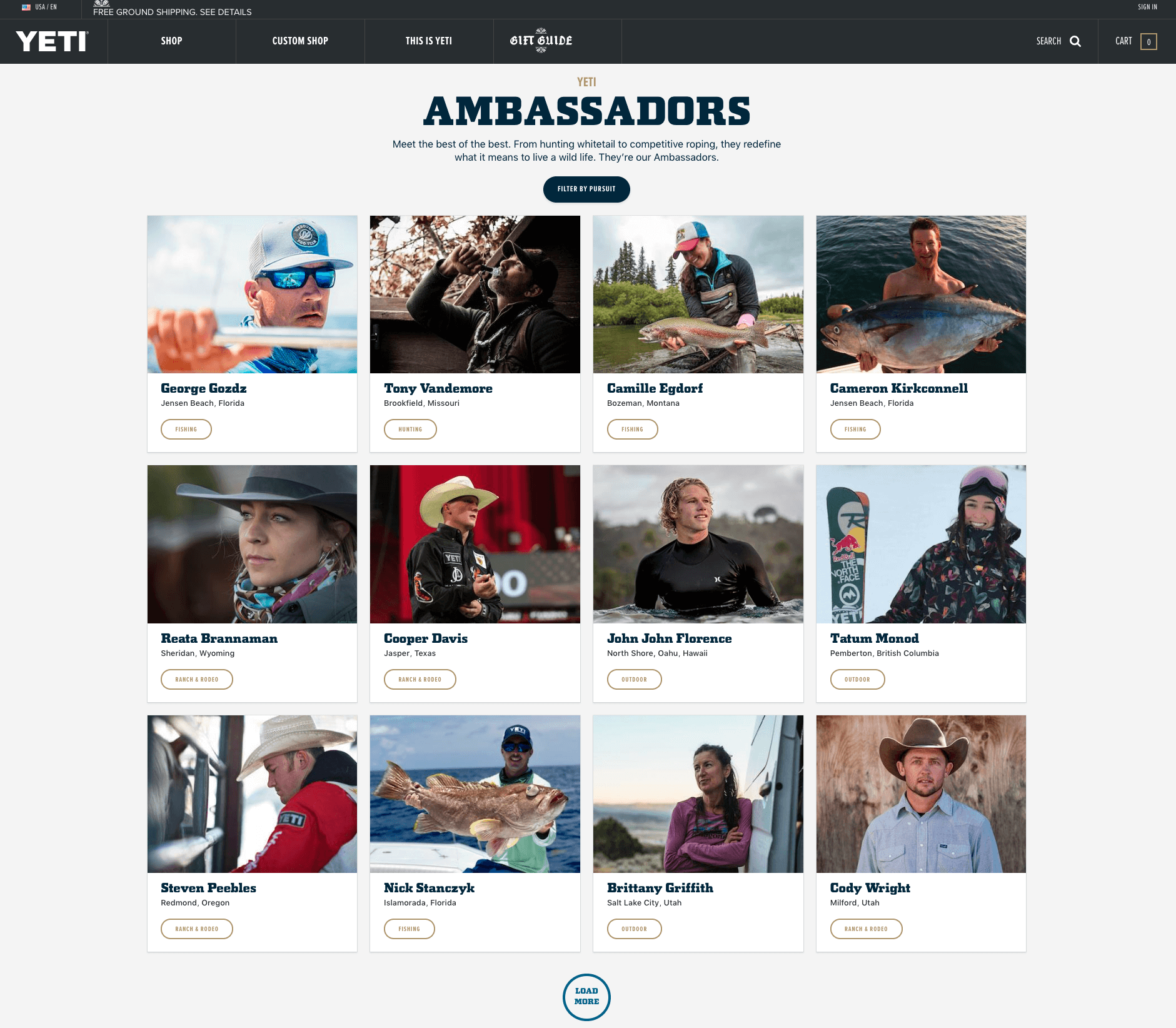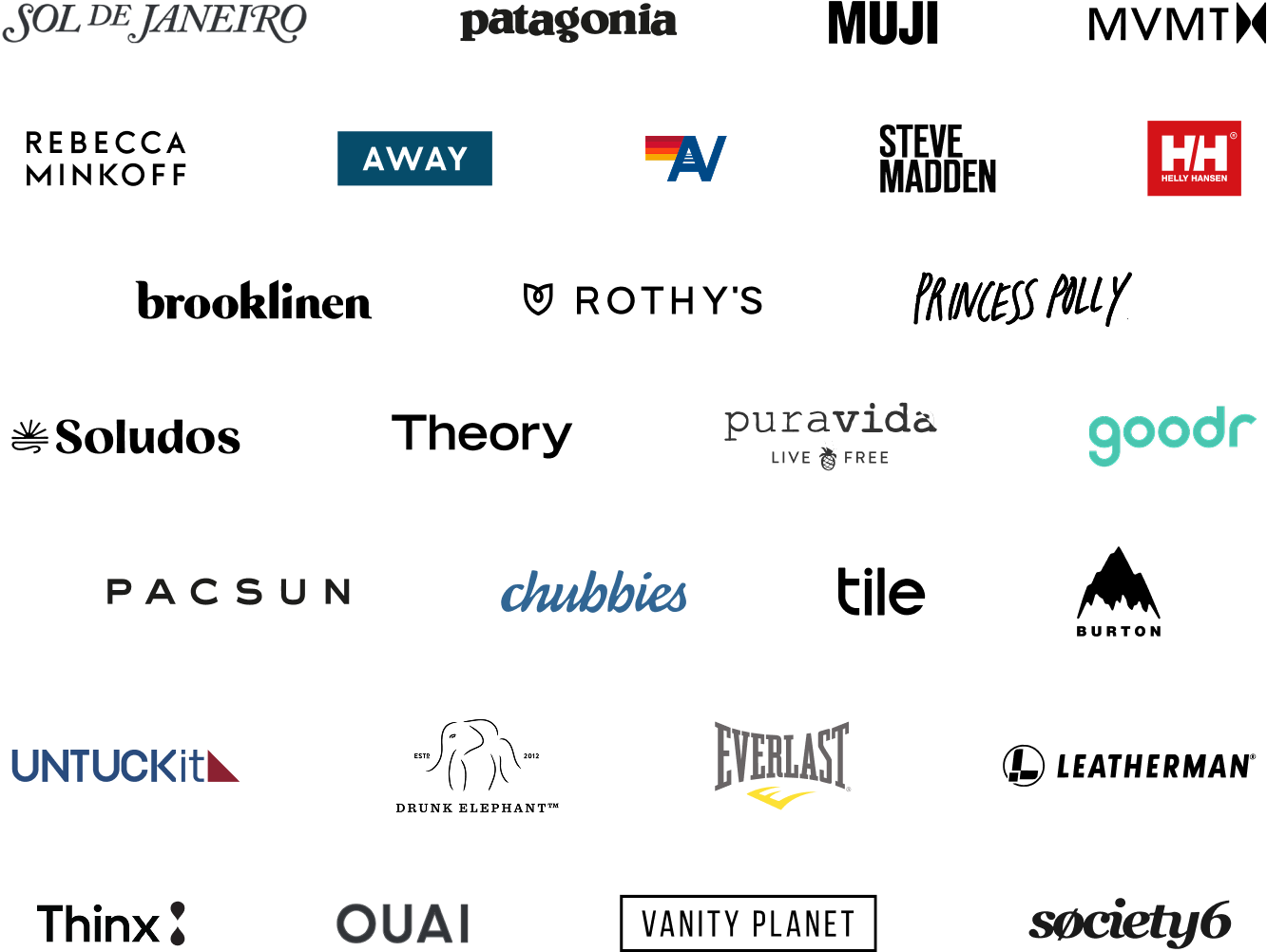Once upon a time. It’s the classic beginning of a story that transports, transfixes, and teaches. Storytelling is a powerful tool brands can use to influence propensity to purchase. Consumers can be moved to buy through stories you tell that align with their realities, needs, and how they see themselves. Deep emotional connections can be formed through compelling narratives.
But think about it. Can you remember the last time a brand moved you with its tagline – the shorthand for their story? “Think” was IBM’s tagline. What does it do for you? Do you feel anything? Probably not. Yet there are brands that have mastered the art of storytelling, immersing consumers in the ethos they’ve created – that, like a mirror, reflect how consumers see themselves.
What does a strong brand story look like?
Consider one of America’s hottest new brands, YETI.
Started in 2006 by two brothers in Texas with a passion for the outdoors, the company has grown revenue 63% in the past five years and generated $639 million in total revenue by the end of 2017. The YETI story is told through enriching experiences of brand ambassadors who embody the YETI identity. The story is simple, “YETI supports the lifestyle that we are so blessed to live, not only through products, but through like-minded people who are passionate about what they do.”

The reinforcing anthem, “Built for the Wild,” connects YETI’s consumer base of outdoor enthusiasts with the brand at its essence. The entire YETI website is steeped in a story, from the featured tales you can filter by pursuit to ambassador profiles of YETI enthusiasts. The brand tells a consistent story through rich content across all their channels. Whether it’s video, social or print, you feel part of a community – one with the brand and with other brand fans.
The elements of a strong brand story
As with any good story, a brand narrative establishes a sense of belonging and relatability in the consumer’s mind. It shines a light on what’s unique about your brand. With this in mind, you should answer the following questions to craft your story:
- Which words define your brand and how you aspire to be seen?
- How do customers see you?
- Is this aligned with how you see your brand?
- What’s the disconnect?
- What makes you unique?
- What are your core values? What do you stand for?
- What will make a difference in customers’ lives?
- What will they be missing if they don’t come along with you on this journey?
How to build a brand story
Any brand, regardless of industry, can take a page out of YETI’s book. Below, I’ll use a food & beverage brand, “Lucille’s Favorite BBQ Sauce” as an example to illustrate how a brand story is built.
Remember, for a good brand story to work, you don’t have to mention the company’s name. In fact, you might not want to. Stories aren’t told with a brand at their center. They are told around an evocative image, ethos, or core value.
That’s where your story should begin:
Barbecues are special. They’ve always been that way for me since I was a little kid. I remember that sweet, spicy scent of ribs cooking low and slow over the blue smoke of a hickory fire on our grill. It meant only one thing to me: summer.
The next step is to transport your consumer to where the brand promise meets their need. Tie the ethos of your brand to the consumer’s life. Show them how they will miss out on the promise of your brand if they don’t buy now. Link the consumer to your brand with a simple, memorable tagline.
“The flavor of summer.”
Once you’ve crystalized your story and tagline, you have to communicate it effectively. In our modern multi-channel world it can be hard to connect your story to a buying journey that likely includes multiple touch points. The key here is translating your story to each of your channels through rich content and consistent messaging.
Brand storytelling and micro-moments
I work with clients to create unified commerce strategies that bring together all of their sales channels to act as one. The customer journey starts at the micro-moment when they identify a need. Your story begins in that moment. If a consumer is served a compelling social media ad with your story, they might look for your brand online. What will they search for? If your story is genuinely persuasive, your tagline might be included in their search criteria. For example, if you search for “Just do it,” Nike will come up in your results.
Let’s say consumers search for your brand and they are presented with links to your website and a Youtube link to your story: these two components should work together to reinforce your story and move them closer to your brand.
All content on your website should reinforce your brand message. Consumers aren’t customers until they realize your brand promise and buy your product. In addition, your brand story must extend to all your channels in the same way. The representation of your brand story must be present in your product, merchandising, and staff. If you are a branded retailer, remember that your staff is the face of your brand. They are your ambassadors and how they represent you must be consistent with consumer understanding of your brand.
The key to a brand story in a unified commerce context is the ability to recognize and track your customer’s journey so that you can provide reinforcing messages at each stop and create an optimized experience.
Top takeaways
- Create a compelling story that presents your core values in a way that creatively evokes emotion in the consumer.
- Tie the story to your brand with a memorable tagline that sticks with the consumer as they move through a purchase journey.
- Connect the content in all of your channels to the brand story, ensuring consistency.
- Empower your brand ambassadors — your staff – to reinforce the brand equity you’ve created.
Happily ever after? Yes, when you tell a good story.
About LiveArea
LiveArea is an award-winning global commerce services provider. Our comprehensive portfolio of capabilities combines consulting, strategy, design/UX, technology, and digital marketing to bring commerce to life.











